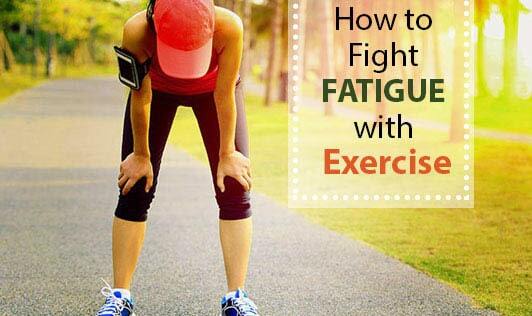Exercise: A Better Remedy For Fatigue Than A Cup Of Coffee
- 28 months ago
When people want a bit of an energy kick, they instinctively down a cup of coffee or devour chocolate or candy. However, there is a healthier and effective alternative to boost your energy – Exercise.
Studies show that physical workout is the secret to fighting constant fatigue, and it should be the go-to solution when you are feeling unenergetic. Browse through the below article to seek out why and how you'll be able to simply incorporate enough exercise in your daily lives to feel nice.
Why Exercise Provides Energy?
However strange it may appear, it is true that exercise, which burns energy, makes it possible to feel fit. This can be because exercise improves blood flow that aids in carrying additional oxygen and nutrients to the muscles, providing you with added energy.
Specialists have found during a study of young healthy folks that doing low-intensity exercise (e.g. walking) 3 times a week for 6 weeks had accrued their energy levels by 20%. Their fatigue levels were additionally slashed by 65%. Sedentary folks committed to doing moderate to intense activity (e.g., cycling) for 6 weeks had accrued their energy levels by 20% with fatigue almost halved.
However, researchers found that more violent and intense exercise failed to give identical results. Instead, they offer the sensation of being fully exhausted.
Increase your Activity and Revel in the Results
Even if your energy levels are normal, physical activity can bring you great satisfaction anyway. The benefits of exercise on health are not just limited to energy levels. Being in good shape reduces the risk of heart disease, type-2 diabetes, certain cancers, and depression. This also helps maintain weight, reduce stress, and sleep better.
Even if your energy levels are normal, physical activity will fetch you excellent satisfaction anyway. The advantages of exercise on health extend past the energy pulse. Being in good condition reduces the chances of cardiovascular disease, type-2 diabetes, certain cancers, and depression. This helps maintain weight, scale back stress, and sleep better.
According to specialists, a typical adult ought to have a minimum of 150 minutes of moderately intense exercise every week. Though this figure could appear overwhelming, it's truly solely half hour every day, 5 days per week. And it's not necessary to workout 30 minutes at once.
To give you a plan of how you can squeeze the 150 hours of physical activity into your week, you can walk briskly for ten minutes before work, during lunch break, or after work. Thus, you may easily reach your half-hour daily. Or else you can garden, do a little cycle ride or perhaps clean your house. As long as you are mobile for a minimum of 20-30 minutes, it's indeed considered exercise.

If you have not exercised for some time, it's better to consult a doctor before beginning any new exercise plan and increase your level of activity step by step.
When Exercise is Not Enough
If you continue to feel constantly tired and sleepy despite physical exercises, consult a doctor. An underlying pathology can indeed cause this fatigue.
Another common symptom of fatigue is lack of sleep. Often, work demands, family, and household work require a late sunset and an early sunrise. Good quality sleep is as important to health as exercise and diet, so make sure to get enough sleep each night. Otherwise, no amount of exercise will help you boost your energy.
In a Nutshell....
So, the next time you need energy, forget the coffee or chocolate bars; walk rather a brisk 10 minutes or vacuum your house and enjoy the feeling of being in good shape and full of energy.
The causes of fatigue are fairly common and many, but there is a multitude of medical conditions which can result in fatigue. If you feel your tiredness is out of the ordinary, and you aren't simply missing out on the sleep you need to feel rested, make an appointment to see your doctor. He/She can take a careful history including your family history of medical conditions, perform a physical exam, and order any blood work needed to begin looking for causes.





